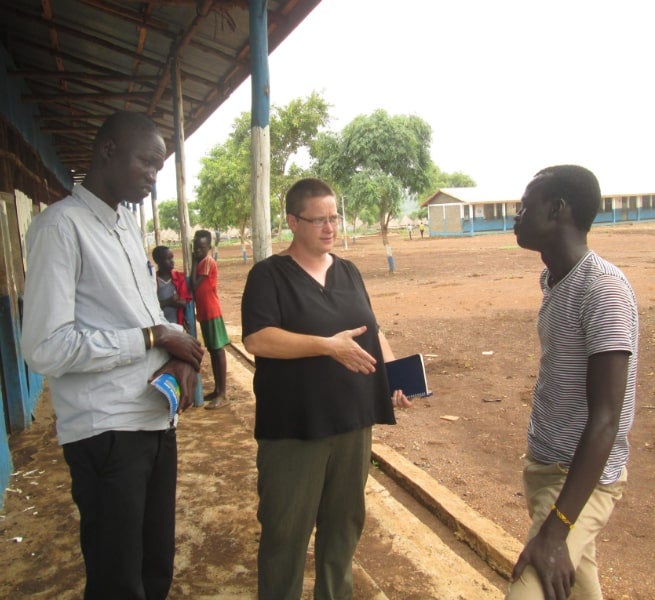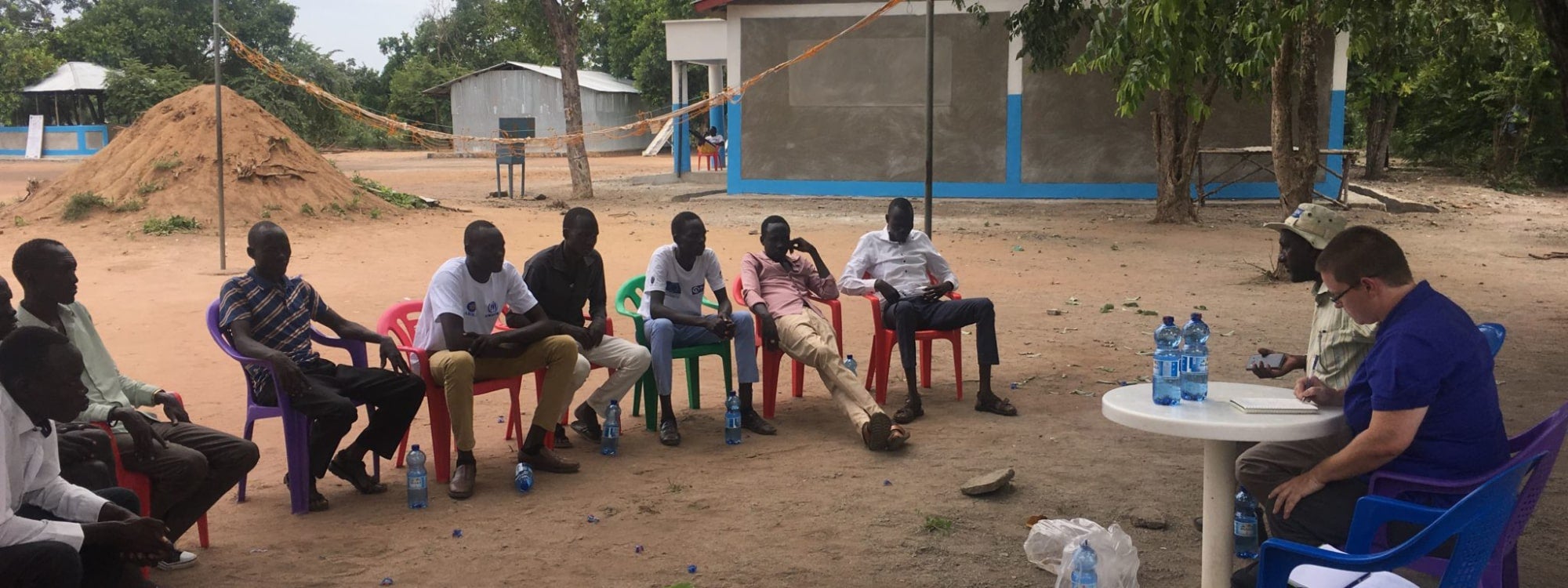As an expert in culturally-relevant, contextualized, and trauma-informed teaching, English Language Specialist Colleen Shaughnessy conducted a needs analysis of the African Union Commission (AUC) staff and three refugee camps in Ethiopia. For the first two weeks of her project, Shaughnessy was based in in Addis Ababa where she distributed an online survey and completed interviews and focus groups with nearly 100 African Union staff members across sectors and rank. Thereafter, she spent an additional two weeks in the Gambella Region of Ethiopia, conducting a needs analysis in three refugee camps. Shaughnessy held focus group meetings with South Sudanese school directors, primary school teachers, and community members in the camps.

Shaughnessy states, “I think this project was really important in that it has the potential to further the State Department’s involvement in refugee education.” From her needs analysis of the refugee camps, Shaughnessy learned that refugees stay in the camps for an average of 17 years, which clearly demonstrates the importance of investing in education initiatives in these contexts. Through her project, Shaughnessy discovered a significant lack of access to information with a population of people eager to learn, creating the perfect scenario for engagement. The recommendations presented in Shaughnessy’s needs analysis will help strengthen English teaching methodology, refugee-context specific pedagogy, resource development, adult education programming, and existing programs to increase English proficiency levels.

Colleen Shaughnessy has taught English as a Second Language (ESL), trained ESL teachers, conducted English language needs assessments, and developed and evaluated ESL curriculum and programs in the United States, South Africa, Kyrgyzstan, Rwanda, Bolivia, the Democratic Republic of the Congo, the African Union, and refugee camps in Ethiopia. Shaughnessy is particularly interested in culturally-relevant, contextualized, and trauma-informed teaching and learning, encouraging student voice in the classroom, and communicative ESL methods. Throughout her eighteen-year career, Shaughnessy has navigated complex diversity issues in post-Apartheid, post-genocide, post-911, and post-colonial teaching and learning contexts.

